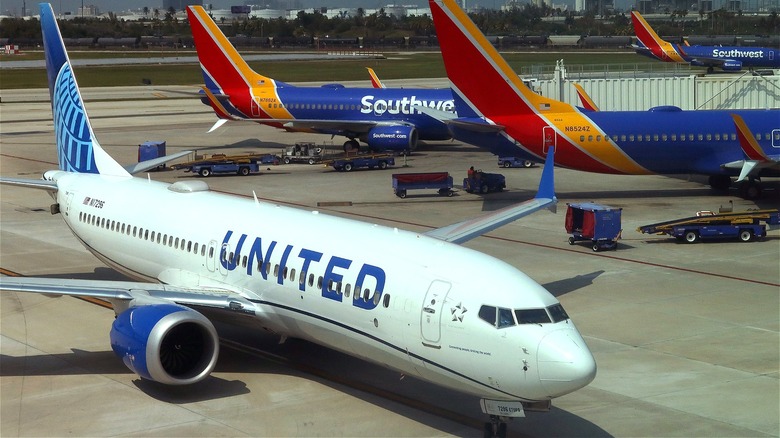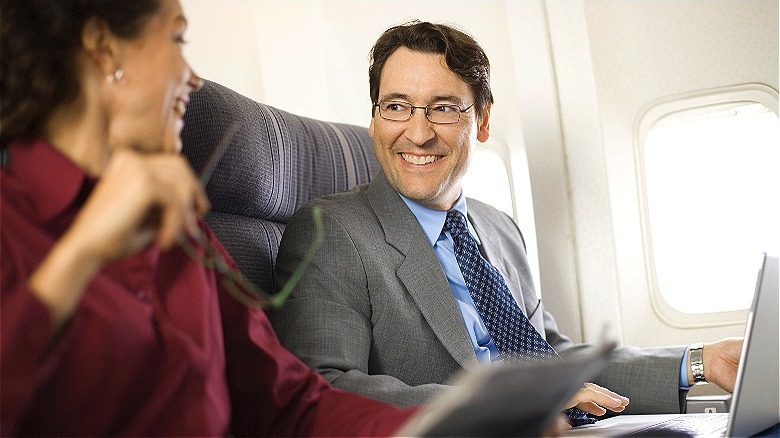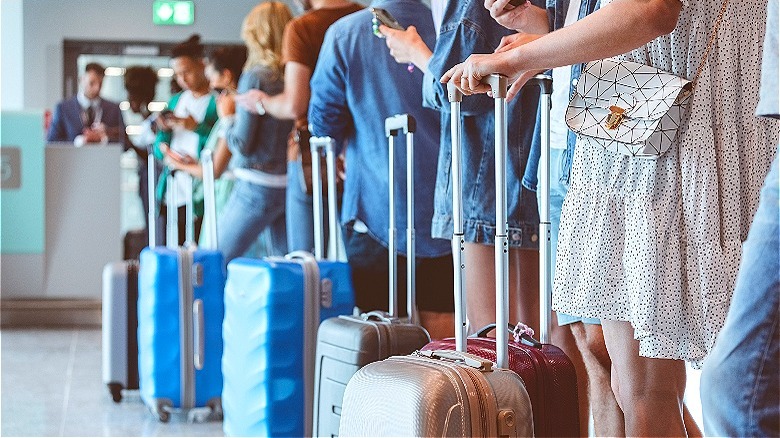What Actually Controls The Price Of Plane Tickets?
When planning a trip that requires air travel, it's common for travelers to browse plane ticket prices before actually booking. Yet often, upon returning to the airline's website only a few days or weeks after that initial search, the prices look drastically different. They've either increased by a significant amount or, always a welcome surprise, dropped below the amount that was originally budgeted for. But why does this happen?
The internet is chock-full of self-proclaimed travel experts who believe they've cracked the code to budget air travel, providing consumers with tips and tricks to secure unprecedentedly cheap flights to Europe and other usually pricey locales. From recommending scam-fueled booking sites to insisting that flight browsing must be done via Incognito mode, their hacks run the gamut. (Find out the best time to book a flight if you want a deal).
While a traveler might get lucky using one of these methods, ultimately their success will largely depend on understanding how airlines control the price of plane tickets. Though at a glance it might seem randomized, factors such as consumer background, demand, and anticipated sales by class determine the original plane ticket price and its subsequent fluctuations.
Demand largely determines the price of plane tickets
Chances are, booking a flight to Minnesota six months in advance of that family reunion is going to be a lot cheaper than one that's departing in only a few days to New York City or Los Angeles. That's because airlines understand the two major travel populations — business and leisure — and thus set prices according to their budgets and timelines.
Those traveling on business are more likely than their vacationing counterparts to book a flight to a major hub with minimal notice. This means, as the departure date gets closer, the demand — and the ticket price — gets higher, with airlines savvy to the fact that individuals booking so late in the game have little to no wiggle room in terms of waiting for a more affordable fare. This, of course, applies to business travelers needing to make a conference in Chicago by Thursday, but also that Minnesota family reunion. If you book with only a few days to spare, you're going to almost always pay more, regardless if it's to NY, LA, Chicago, or Duluth.
Of course, even if one is booking several months in advance to avoid this late-booking scenario, popular travel seasons, like the holidays, mean increased prices still because higher demand equals higher costs (like with these ultra-rare Funko Pops!).
In addition to demand, there's also a pricing model
Airline ticket pricing can sometimes seem completely randomized, but behind-the-scenes, there's actually a method to the madness, with airlines utilizing expected marginal seat revenue. Rick Zeni, an airline executive boasting 30 years of experience in revenue management and pricing, explained, "They've come up with a mechanism that ensures that higher fare seats will always be available to people who want to pay for them, even if they've underestimated the number of seats they should protect for that fare."
For example, an airline may "protect" 40 out of the total 100 seats on the plane for the highest price of $500, but the booking limit for that cost is all 100 seats. This means that, as the date of departure approaches and seats in the lower-class tiers have not all sold (there are no protections for the lowest level), a ticket that was originally $100 can be hiked up to that max of $500 if people are willing to pay (though they might be able to save money on that expensive plane ticket with this simple trick).
And who would be willing to pay five times the cost of a plane ticket? Anyone who needs to be somewhere in only a few days, which, as previously mentioned, often means business professionals traveling on their company's dime last-minute rather than a vacationer who's had time to plan out their travels (though they, too, could still pay $500 for a $100 seat if there's only one left to their family gathering tomorrow).


